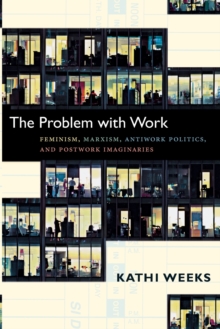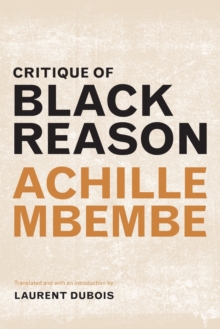
A Time for Tea : Women, Labor, and Post/Colonial Politics on an Indian Plantation Paperback / softback
by Piya Chatterjee
Part of the A John Hope Franklin Center Book series
Paperback / softback
Description
In this creative, ethnographic, and historical critique of labor practices on an Indian plantation, Piya Chatterjee provides a sophisticated examination of the production, consumption, and circulation of tea.
A Time for Tea reveals how the female tea-pluckers seen in advertisements—picturesque women in mist-shrouded fields—came to symbolize the heart of colonialism in India.
Chatterjee exposes how this image has distracted from terrible working conditions, low wages, and coercive labor practices enforced by the patronage system.
Allowing personal, scholarly, and artistic voices to speak in turn and in tandem, Chatterjee discusses the fetishization of women who labor under colonial, postcolonial, and now neofeudal conditions.
In telling the overarching story of commodity and empire, A Time for Tea demonstrates that at the heart of these narratives of travel, conquest, and settlement are compelling stories of women workers.
While exploring the global and political dimensions of local practices of gendered labor, Chatterjee also reflects on the privileges and paradoxes of her own “decolonization” as a Third World feminist anthropologist.
The book concludes with an extended reflection on the cultures of hierarchy, power, and difference in the plantation’s villages.
It explores the overlapping processes by which gender, caste, and ethnicity constitute the interlocked patronage system of villages and their fields of labor.
The tropes of coercion, consent, and resistance are threaded through the discussion. A Time for Tea will appeal to anthropologists and historians, South Asianists, and those interested in colonialism, postcolonialism, labor studies, and comparative or international feminism.Designated a John Hope Franklin Center book by the John Hope Franklin Seminar Group on Race, Religion, and Globalization.
Information
-
Available to Order - This title is available to order, with delivery expected within 2 weeks
- Format:Paperback / softback
- Pages:440 pages, 27 b&w photos, 6 tables
- Publisher:Duke University Press
- Publication Date:29/11/2001
- Category:
- ISBN:9780822326748
Other Formats
- Hardback from £107.00
Information
-
Available to Order - This title is available to order, with delivery expected within 2 weeks
- Format:Paperback / softback
- Pages:440 pages, 27 b&w photos, 6 tables
- Publisher:Duke University Press
- Publication Date:29/11/2001
- Category:
- ISBN:9780822326748










